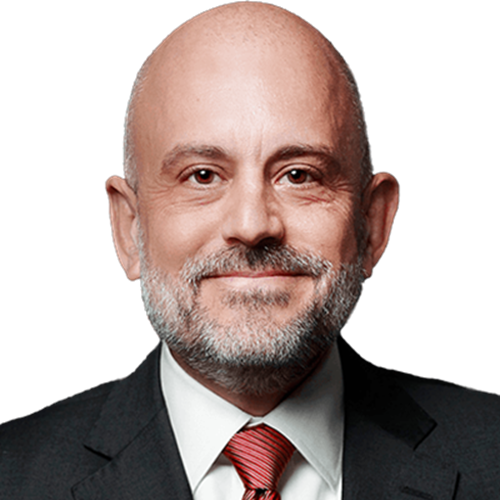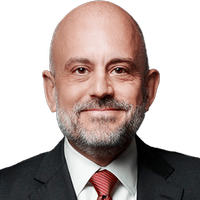The 5 Biggest Regrets People Have About Retirement
Want to be well-prepared for a happy and secure retirement? Learn from other retirees’ top mistakes and missed opportunities.

Profit and prosper with the best of Kiplinger's advice on investing, taxes, retirement, personal finance and much more. Delivered daily. Enter your email in the box and click Sign Me Up.
You are now subscribed
Your newsletter sign-up was successful
Want to add more newsletters?

Delivered daily
Kiplinger Today
Profit and prosper with the best of Kiplinger's advice on investing, taxes, retirement, personal finance and much more delivered daily. Smart money moves start here.

Sent five days a week
Kiplinger A Step Ahead
Get practical help to make better financial decisions in your everyday life, from spending to savings on top deals.

Delivered daily
Kiplinger Closing Bell
Get today's biggest financial and investing headlines delivered to your inbox every day the U.S. stock market is open.

Sent twice a week
Kiplinger Adviser Intel
Financial pros across the country share best practices and fresh tactics to preserve and grow your wealth.

Delivered weekly
Kiplinger Tax Tips
Trim your federal and state tax bills with practical tax-planning and tax-cutting strategies.

Sent twice a week
Kiplinger Retirement Tips
Your twice-a-week guide to planning and enjoying a financially secure and richly rewarding retirement

Sent bimonthly.
Kiplinger Adviser Angle
Insights for advisers, wealth managers and other financial professionals.

Sent twice a week
Kiplinger Investing Weekly
Your twice-a-week roundup of promising stocks, funds, companies and industries you should consider, ones you should avoid, and why.

Sent weekly for six weeks
Kiplinger Invest for Retirement
Your step-by-step six-part series on how to invest for retirement, from devising a successful strategy to exactly which investments to choose.
It is easy to identify things you could have done differently knowing what you know today. If only we had a crystal ball, life could be so much easier.
Well, it is not a crystal ball, but we do have those who have gone before us to pull from their experiences to help improve our future. After nearly 30 years of helping people with retirement, I hear a lot of the same things repeated from retirees about what they would have done differently.
Here are the top five regrets I hear from retirees that you may want to consider as you make important decisions about your future:
From just $107.88 $24.99 for Kiplinger Personal Finance
Become a smarter, better informed investor. Subscribe from just $107.88 $24.99, plus get up to 4 Special Issues

Sign up for Kiplinger’s Free Newsletters
Profit and prosper with the best of expert advice on investing, taxes, retirement, personal finance and more - straight to your e-mail.
Profit and prosper with the best of expert advice - straight to your e-mail.
I Wish I Had Started My Transition Plans Earlier
Obviously, the sooner you start saving for retirement, the longer growth compounds for you over time. But saving isn’t the only thing retirees regret putting off. Many retirees wait until the last few weeks or months before they want to retire to begin planning for the actual transition.
After discussing what is involved with their transition into retirement — from accumulating assets to protecting and preparing to distribute assets — I often hear that they wish they would have started planning their retirement sooner. They admit that there is more to the preparation than they thought was needed.
The biggest retirement myth is the thought that having a large 401(k) or investment account is all that is needed to retire but, there is more to it than simply having enough money and choosing a date. It is best to map things out a few years prior to the big day.
I Wish I Had Gotten Help with High-Level Strategies Sooner
This one piggybacks a bit on the previous one, suggesting that you only know what you know. Making assumptions about your retirement is a slippery slope because there is so much to be considered, and time is of the essence for a plan to unfold and be successful.
If you want to avoid adding to your “woulda, coulda, shoulda” list, don’t navigate the maze of decisions, actions and products alone. Even if you have a heightened understanding of the markets, your access to products and understanding the tax implications of retirement is difficult for even a seasoned financial adviser to keep up with, much less someone in an unrelated field.
A real challenge for some people is accepting that they might have blind spots in their understanding of what needs to be done and keeping an open mind to a professional’s opinion.
I Wish I Had Been Open to Changing Strategies
This is a big one, and I recently had an in depth discussion about this on my podcast, How To Create the Perfect Investment Portfolio. There are certain phases of growing assets that require a different approach, and knowing when you are entering into another phase is critical for capitalizing on these opportunities.
Many times, when an investor begins saving for their retirement, they begin investing in mutual funds and will often blow right past timely forks in the road to ultimately find themselves at retirement with the same approach as they had when they started.
To compound the problem, some will even maintain this approach well into their retirement, never considering the fact that there may be a better way to hold assets. This is concerning because there is so much more that can be done to grow, utilize and protect assets if time would be taken to understand the possibilities.
I Wish I Had Kept My Eye on the Prize
We live in a society that promotes consumption, and while there is a thin line between living abundantly versus living in scarcity, finding the right balance between living for now and saving is the key to success.
Of course, building a business that grows rapidly and is sold for a hefty profit, hitting the lottery or being born with a trust fund is not really the example I am pointing too. It is the typical person who is working, supporting a family, covering the needs of the day while thinking about retirement. There is a lot to unpack for this one, but the idea that saving 10% of your annual salary is going to get you where you want to be is a misnomer, in my opinion. It is guaranteed to fall short of the ideal scenario when it comes time to retire.
What I have seen work most effectively are those who stretch their savings into the 20% and 30% or more range with the end in mind. They want success and freedom of time sooner than later. To accelerate the progression, many will begin businesses, invest in alternative investments, such as real estate, and will focus more on wealth creation rather than a desire to live a high-end lifestyle.
I Wish I Hadn’t Put Off the Difficult Decisions
Procrastination is something many people struggle with. We all have things we really should get done that we don’t want to deal with.
For retirees, the discussion around estate planning and long-term care brings to light our mortality and the realization that some will need assisted living later in life. No one really wants to discuss this or face the possibilities while trying to plan for retirement but, the truth is that it is an ideal time to have the discussion since your entire financial situation is being reconstructed to provide you the means to retire.
I hear from people routinely who say they have a sick spouse and want to know how they can protect assets from nursing home expenses or they inform me that their spouse has passed and don’t know where everything is or where to start with getting their affairs in order.
The clients who get out in front of these matters certainly have a greater sense of security than those who leave it hanging over their heads for years into their retirement.
There is a lot to take in from those who have paved the path before you and while some of these points may seem like common sense, the reality is that they aren’t being followed. It is why I still today listen to people sharing their thoughts with me about what they wish they would have done differently.
If you’re looking for a path to follow in your effort to reduce the onset of regret, check out The Successful Retirement Checklist.
Securities offered through Kalos Capital, Inc., Member FINRA/SIPC/MSRB and investment advisory services offered through Kalos Management, Inc., an SEC registered Investment Advisor, both located at11525 Park Wood Circle, Alpharetta, GA 30005. Kalos Capital, Inc. and Kalos Management, Inc. do not provide tax or legal advice. Skrobonja Financial Group, LLC and Skrobonja Insurance Services, LLC are not an affiliate or subsidiary of Kalos Capital, Inc. or Kalos Management, Inc.
Securities offered only by duly registered individuals through Madison Avenue Securities, LLC. (MAS), Member FINRA & SIPC. Advisory services offered only by duly registered individuals through AE Wealth Management (“AEWM”), a registered investment adviser. Skrobonja Financial Group, LLC, Skrobonja Insurance Services, LLC, AEWM and MAS are not affiliated entities. The article and opinions in this publication are for general information only and are not intended to provide specific advice or recommendations for any individual. We suggest that you consult your accountant, tax or legal adviser with regard to your individual situation.
Profit and prosper with the best of Kiplinger's advice on investing, taxes, retirement, personal finance and much more. Delivered daily. Enter your email in the box and click Sign Me Up.

Brian Skrobonja is a Chartered Financial Consultant (ChFC®) and Certified Private Wealth Advisor (CPWA®), as well as an author, blogger, podcaster and speaker. He is the founder and president of a St. Louis, Mo.-based wealth management firm. His goal is to help his audience discover the root of their beliefs about money and challenge them to think differently to reach their goals. Brian is the author of three books, and his Common Sense podcast was named one of the Top 10 podcasts by Forbes. In 2017, 2019, 2020, 2021 and 2022, Brian was awarded Best Wealth Manager. In 2021, he received Best in Business and the Future 50 in 2018 from St. Louis Small Business.
-
 Quiz: Do You Know How to Avoid the "Medigap Trap?"
Quiz: Do You Know How to Avoid the "Medigap Trap?"Quiz Test your basic knowledge of the "Medigap Trap" in our quick quiz.
-
 5 Top Tax-Efficient Mutual Funds for Smarter Investing
5 Top Tax-Efficient Mutual Funds for Smarter InvestingMutual funds are many things, but "tax-friendly" usually isn't one of them. These are the exceptions.
-
 AI Sparks Existential Crisis for Software Stocks
AI Sparks Existential Crisis for Software StocksThe Kiplinger Letter Fears that SaaS subscription software could be rendered obsolete by artificial intelligence make investors jittery.
-
 Social Security Break-Even Math Is Helpful, But Don't Let It Dictate When You'll File
Social Security Break-Even Math Is Helpful, But Don't Let It Dictate When You'll FileYour Social Security break-even age tells you how long you'd need to live for delaying to pay off, but shouldn't be the sole basis for deciding when to claim.
-
 I'm an Opportunity Zone Pro: This Is How to Deliver Roth-Like Tax-Free Growth (Without Contribution Limits)
I'm an Opportunity Zone Pro: This Is How to Deliver Roth-Like Tax-Free Growth (Without Contribution Limits)Investors who combine Roth IRAs, the gold standard of tax-free savings, with qualified opportunity funds could enjoy decades of tax-free growth.
-
 One of the Most Powerful Wealth-Building Moves a Woman Can Make: A Midcareer Pivot
One of the Most Powerful Wealth-Building Moves a Woman Can Make: A Midcareer PivotIf it feels like you can't sustain what you're doing for the next 20 years, it's time for an honest look at what's draining you and what energizes you.
-
 I'm a Wealth Adviser Obsessed With Mahjong: Here Are 8 Ways It Can Teach Us How to Manage Our Money
I'm a Wealth Adviser Obsessed With Mahjong: Here Are 8 Ways It Can Teach Us How to Manage Our MoneyThis increasingly popular Chinese game can teach us not only how to help manage our money but also how important it is to connect with other people.
-
 Looking for a Financial Book That Won't Put Your Young Adult to Sleep? This One Makes 'Cents'
Looking for a Financial Book That Won't Put Your Young Adult to Sleep? This One Makes 'Cents'"Wealth Your Way" by Cosmo DeStefano offers a highly accessible guide for young adults and their parents on building wealth through simple, consistent habits.
-
 Global Uncertainty Has Investors Running Scared: This Is How Advisers Can Reassure Them
Global Uncertainty Has Investors Running Scared: This Is How Advisers Can Reassure ThemHow can advisers reassure clients nervous about their plans in an increasingly complex and rapidly changing world? This conversational framework provides the key.
-
 I'm a Real Estate Investing Pro: This Is How to Use 1031 Exchanges to Scale Up Your Real Estate Empire
I'm a Real Estate Investing Pro: This Is How to Use 1031 Exchanges to Scale Up Your Real Estate EmpireSmall rental properties can be excellent investments, but you can use 1031 exchanges to transition to commercial real estate for bigger wealth-building.
-
 Should You Jump on the Roth Conversion Bandwagon? A Financial Adviser Weighs In
Should You Jump on the Roth Conversion Bandwagon? A Financial Adviser Weighs InRoth conversions are all the rage, but what works well for one household can cause financial strain for another. This is what you should consider before moving ahead.
